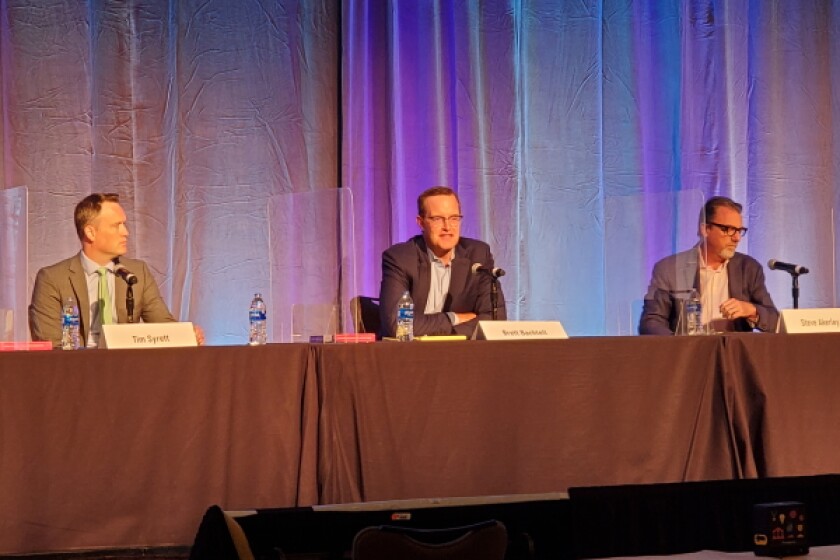Standard essential patent litigation raises some tough jurisdictional challenges for plaintiffs and litigants, a panel told delegates at the IPO Annual Meeting in Austin yesterday, September 21.
Speakers from InterDigital, Qualcomm, Bardehle Pagenberg, WilmerHale and Shanghai Lung Tin Law Firm said that one of the biggest they faced recently was the threat of anti-anti-suit injunctions (AASIs), and even anti-anti-anti-suit injunctions (AAASIs), in India, China, Germany and the US.
AASIs are court orders that direct litigants not to enforce anti-suit injunctions (ASIs) against one another. ASIs themselves are court orders that instruct parties not to pursue litigation in certain venues under the threat of a penalty.
Panellists pointed out, however, that AASIs and AAASIs aren’t created equally – each judge who has issued one has approached the matter in different ways.
AASI divergence
Steve Akerley, head of litigation at InterDigital in California, noted that this was the first time a court set out that that the pursuit of an ASI could be construed as proof that an entity was unwilling to enter into a fair, reasonable and non-discriminatory (FRAND) licensing agreement.
Tilman Müller-Stoy, partner at Bardehle Pagenberg in Munich, added that the appeal court had yet to affirm the decision, but that if it stood it could “kill the FRAND defence”.
Ying Luo at the Shanghai Lung Tin Law Firm said that by contrast, the ASI issued in Huawei v Conversant (which was actually ananti-injunction injunction) was quite narrow, noting that it simply laid out that Conversant couldn’t enforce the ASI it got in Germany for a limited period of time.
And then there was the AASI issued by Chief Judge Rodney Gilstrap at the District Court for the Eastern District of Teas in Ericsson v Samsung. Akerley pointed out that in that case, Gilstrap informed Samsung that international litigation would not prevent the US from rightfully setting its own FRAND rate, warning that the court would indemnify Ericsson for any penalties it received in China.
In late December 2020, a court in Wuhan granted Samsung an ASI against Ericsson.
A fading risk
“Judges don’t like being told what to do in any country, and especially not by a judge in another country,” he said.
“Parties started to realise that AASIs were being granted everywhere, and the alphabet soup that was being built up by these injunctions wasn’t actually getting anyone anywhere.”
He added: “The different judges’ opinions were terribly interesting though from a lawyer’s perspective because they set out why they should have these cases and why they had the authority to tell another jurisdiction what they could and could not do – but it’s still risky.”











